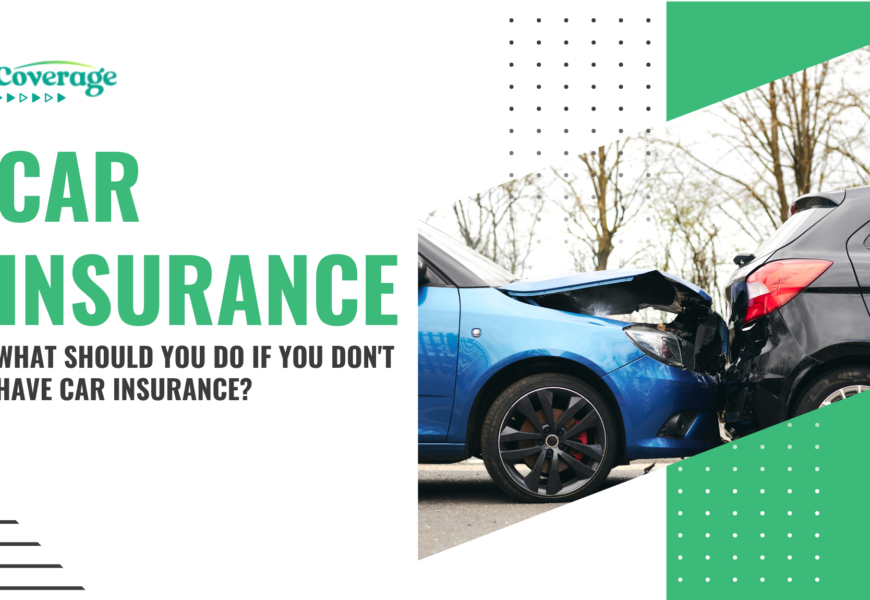Car insurance is not just a legal requirement in most countries; it also provides crucial financial protection in the event of an accident, theft, or damage to your vehicle. Driving without car insurance can lead to significant consequences, including fines, penalties, and even the loss of your driver’s license. If you find yourself without car insurance, here’s what you should do to mitigate risks and ensure you’re complying with legal requirements.
1. Understand the Legal Implications
Before you drive without car insurance, it’s important to understand the legal ramifications in your area. Many countries and states require drivers to carry a minimum level of insurance coverage. Failure to comply with these laws can result in fines, the suspension of your driver’s license, and even legal action. In some places, driving without insurance may be considered a criminal offense, with severe consequences.
2. Obtain Insurance as Soon as Possible
If you’re caught driving without insurance, the best course of action is to immediately get coverage. Car insurance policies are available with varying levels of coverage, ranging from liability-only policies to comprehensive plans. It’s advisable to choose a policy that suits your budget and offers sufficient protection for your needs. If you’re unsure about which policy to choose, consult an insurance agent or broker to guide you through the process.
3. Consider Minimum Coverage Policies
If your budget is tight, opt for the minimum coverage required by law in your area. While basic liability coverage may not offer full protection in every scenario, it is better than driving uninsured. The minimum coverage will usually cover damages to other vehicles or injuries caused by an accident for which you are found at fault. However, this type of policy might not cover your vehicle’s repairs or medical bills, so consider additional coverage if possible.
4. Check for Gaps in Existing Coverage
In some cases, you may not need to purchase new insurance if you’re temporarily without coverage. For example, if you recently allowed your policy to lapse or forgot to renew, check with your insurer to see if they can reinstate your policy. Additionally, if you have other types of coverage (such as homeowner’s insurance or health insurance), they may help cover certain aspects of a car accident, though they won’t fully replace car insurance.
5. Explore Temporary Insurance Options
If you’re unable to afford long-term insurance or only need coverage for a short period, look into temporary or short-term car insurance options. These policies are designed for drivers who need coverage for a few days, weeks, or months. Short-term car insurance can be more affordable than a traditional policy and will provide the necessary coverage while you work toward getting a more permanent solution.
6. Avoid Driving Until You Have Insurance
If you are unable to secure car insurance or cannot afford it, it’s best to avoid driving altogether. Driving without insurance not only exposes you to financial risk, but it can also lead to legal issues. If you’re caught driving uninsured, you may face significant penalties, which can include having to pay fines, impounding of your vehicle, and increased insurance premiums in the future.
7. Consider Alternative Transportation
If you are temporarily without car insurance and cannot afford a new policy right away, consider using alternative modes of transportation until you’re able to resolve your situation. Public transportation, ridesharing services, or even carpooling with friends and family can help you get around while avoiding the risks associated with driving uninsured.
8. Seek Financial Assistance or Discounts
Some insurers offer discounts to drivers with a clean driving record or those who take defensive driving courses. If your situation is financially challenging, inquire with insurance companies about potential discounts, payment plans, or low-income options. You may also be eligible for assistance programs through your employer, community organizations, or government initiatives.
9. Know Your Rights if You Are Involved in an Accident
If you are involved in an accident while uninsured, you may still be responsible for the damages caused. However, in some cases, if the other driver is at fault and has insurance, you might be able to recover some of the costs through their policy. Without insurance, though, you could be held liable for medical expenses, repair costs, and even legal fees.
10. Take Preventative Measures to Avoid Future Gaps
To avoid future lapses in coverage, set reminders for policy renewal dates and keep track of your insurance payments. Some insurers even offer automatic payment plans, which can help ensure you don’t miss a renewal date. Additionally, if you’re experiencing financial difficulties, discuss your situation with your insurer, as they may offer flexibility or suggest more affordable options.
Conclusion
Driving without car insurance is risky and can have serious legal and financial consequences. If you find yourself in this situation, it’s crucial to act quickly by obtaining the necessary coverage to protect yourself and others. Whether it’s reinstating an existing policy, securing minimum coverage, or exploring temporary insurance options, taking action is the first step toward ensuring you comply with the law and are safeguarded in the event of an accident.










